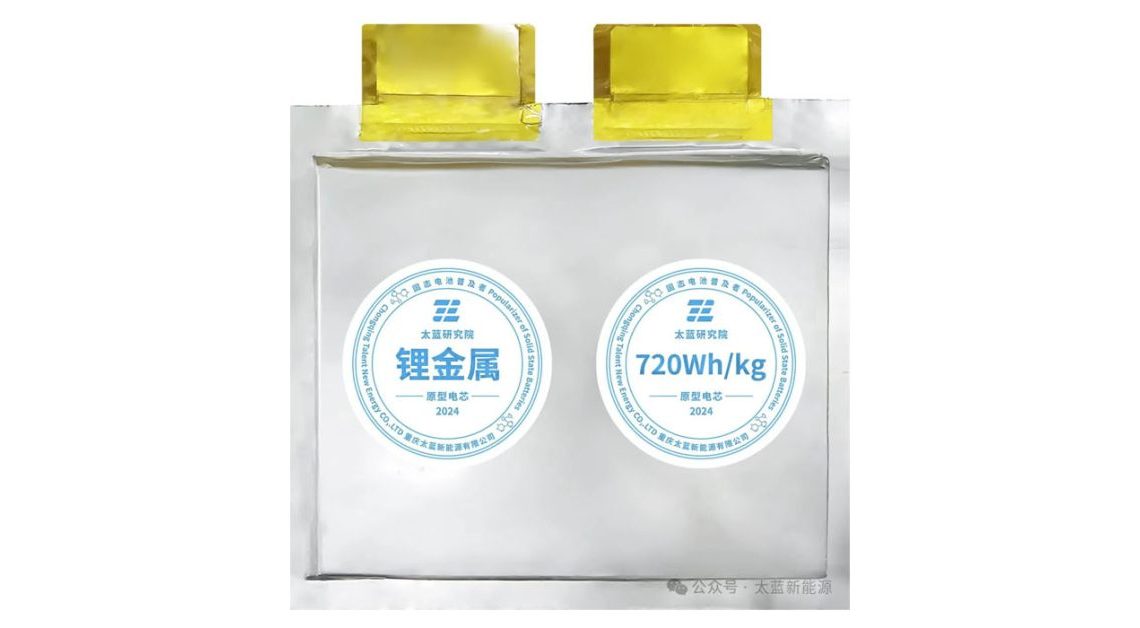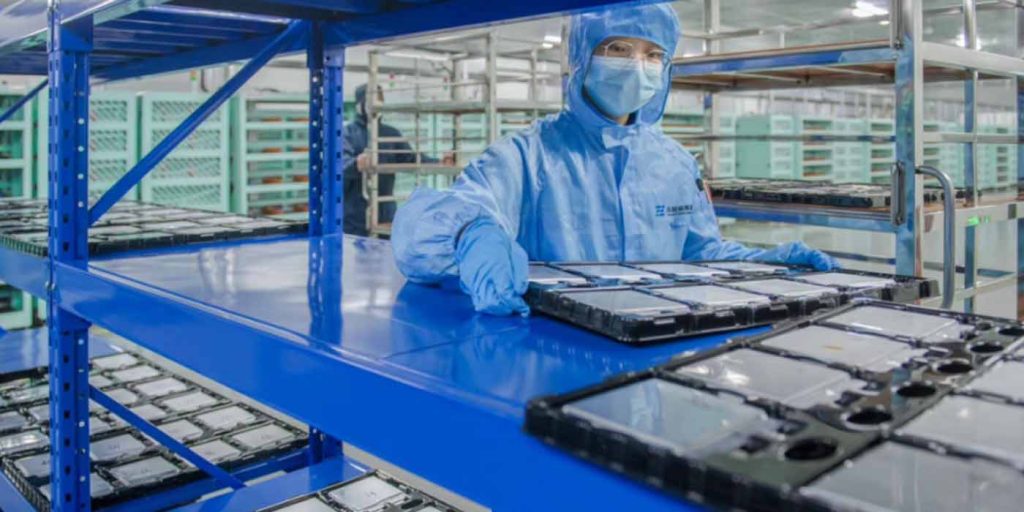
A solid-state battery developer in China has unveiled a new cell that could help change the game for electric mobility. Tailan New Energy’s vehicle-grade all-solid-state lithium batteries offer energy density twice that of other cells in the segment, empowering the Chinese battery maker to hail the cells as a record-setter in the industry.
Tailan New Energy, aka Talent New Energy, is a private solid-state battery developer founded in Beijing, China, in 2018, where it remains headquartered in its research.
Per its website, it was “co-founded by lithium battery R&D experts and a senior domestic industrialization team, focusing on the technological development and industrialization of new solid-state lithium batteries and key lithium battery materials.”
The early culmination of those efforts has brought on plenty of accolades, including awards as a top five energy company in the electric mobility segment and a spot on China’s list of 100 future unicorns in 2023.
Given Tailan New Energy’s recently revealed specs for its latest solid-state battery prototype cell, it’s easy to see what all the hype is about.

Tailan unveils 120 Ah solid-state battery cell
Per a press release from the battery developer posted to WeChat this week, it has achieved several technological breakthroughs in all-solid-state lithium batteries, enabling a new prototype cell that offers ultra-high energy density that could very soon power passenger EVs longer distances on a single charge.
According to Tailan, those breakthroughs pertain specifically to ultra-thin and dense composite oxide solid electrolytes, high-capacity advanced positive and negative electrode materials, and an integrated molding process that culminates into an impressive 120 Ah solid-state lithium metal cell. Based on its specs, Tailan New Energy states its solid-state battery cell sets industry records in both energy density and storage capacity.
In what Talian is calling a “world’s first,” the prototype cells house an energy density of 720 Wh/kg – more than double other cells currently being integrated into passenger EVs in China, like WeLion’s batteries for NIO, for example. Those 360 Wh/kg WeLion cells are expected to propel NIO EVs over 1,000km (620 miles) on a single charge later this year, so the potential of Talian New Energy’s technology to double that density in a similarly sized architectural footprint could reshape the mobility landscape.
Breaking down its new prototype cell, the battery developer shared its potentially record-setting numbers stem from high-gram capacity, lithium-rich manganese-based material in the positive electrode, an ultra-wide and thin lithium composite in the negative electrode enabling high cycle stability, and a proprietary high-performance oxide composite solid-state electrolyte, which it says addresses the solid-solid interface impedance problem plaguing current solid-state lithium cells. The release goes on:
Tailan New Energy improves the migration ability of charged particles inside the cathode by building an efficient ion and electron transmission network, and uses self-developed interface flexible layer materials to effectively reduce the interface impedance while also improving the interface stability, achieving It has comprehensively improved the comprehensive performance of the battery and is expected to fundamentally solve the problems of battery life and safety anxiety of traditional lithium-ion batteries.
Tailan did not mention any specific plans for passenger vehicle integration yet, but did state its latest generation of all-solid-state battery cells are vehicle grade. If the company is able to scale this technology large enough for consumer vehicles while keeping prices down, it could easily double the range of the farthest-driving EVs on the road today.
Author: Scooter Doll
Source: Electrek




Top comment by Brian
Liked by 10 people
We don’t need cars with 1300 miles of range, we need lighter EVs that have better efficiency that can do 300-400 miles. Making the battery 2/3 to 3/4 lighter and hopefully cheaper would be a significant boon to the EV auto industry. Imagine having a EV that weighs less than an ICE equivalent for similar range per charge/tank. Imagine being able to do an EV conversion on that classic car you love and still get decent range without having a trunk full of batteries.
View all comments